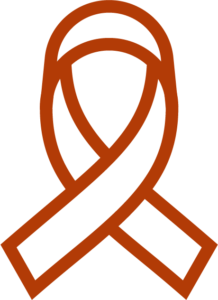
Manzano A, Hofmarcher T
Improving Outcomes for Women with Triple-Negative Breast Cancer in Latin America – An Extended Analysis
(Por favor, mire abajo la versión en español)
Breast cancer is a major and growing public health concern in Latin America. One of the most aggressive and challenging subtypes of breast cancer is triple-negative breast cancer (TNBC), accounting for 13–21% of all breast cancer cases.
This report is an extension of IHE Report 2023:6. It covers three new countries – Dominican Republic, Panama, and Peru – in addition to Argentina, Brazil, Chile, Colombia, and Mexico. It takes a closer look at challenges and opportunities to improve the care of TNBC in Latin America.
TNBC is often diagnosed at a late stage when survival chances are low. Early detection – through self-detection and screening – is vital to improve the chance of survival. Current challenges for early detection of TNBC in Latin America include:
• Low awareness of early signs of breast cancer and fear of diagnosis among women
• Low participation or absence of organized population-based screening programs
• Low perceived quality of primary care and screening services in the public sector
TNBC is the most difficult-to-treat subtype of breast cancer irrespective of stage at diagnosis.
The recent introduction of immunotherapy and targeted therapy (for patients with BRCA mutations) is currently changing the treatment landscape. Timely breast diagnostics and appropriate treatment are imperative to increase the survival chances of patients. Current challenges in the areas of diagnostics and treatment of TNBC in Latin America include:
• Poor coordination between providers of diagnostic services and treatment in the public sector
• Shortages of specialized physicians, such as pathologists, oncologists, radiologists
• Lack of diagnostic infrastructure and comprehensive biomarker testing
• Lack of availability of new treatments in the public sector and slow adoption of new treatment approaches in clinical practice
Broad recommendations to improve the care of TNBC patients in Latin America include efforts to raise health literacy to facilitate early detection, ensure optimal care delivery along the entire patient pathway, and adoption of innovation in clinical practice. Improving the quality of care – from early detection to diagnostics and treatment – has wider positive implications for society, including effects on health systems, work life, family life, the need for informal care, and the economy.
Download the new REPORT 2024:4 (including Dominican Republic, Panama, Peru):
Extended version of the report in English
Extended version of the report in Spanish
Download the previous REPORT 2023:6 (including only Argentina, Brazil, Chile, Colombia, Mexico):
Report in English
Report in Spanish
Report in Portuguese
For more information, please contact Thomas Hofmarcher
IHE REPORT 2024:4 IHE: Lund, Sweden
